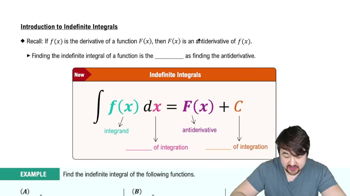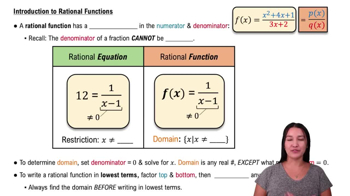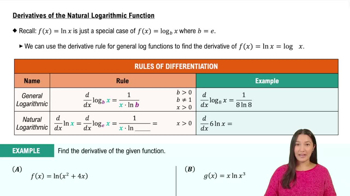71. Different Methods
Let I = ∫ (x²)/(x + 1) dx.
b. Evaluate I by first performing long division on the integrand.
 Verified step by step guidance
Verified step by step guidance Verified video answer for a similar problem:
Verified video answer for a similar problem:



 5:04m
5:04mMaster Introduction to Indefinite Integrals with a bite sized video explanation from Patrick
Start learning